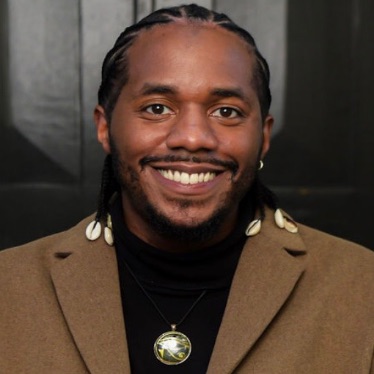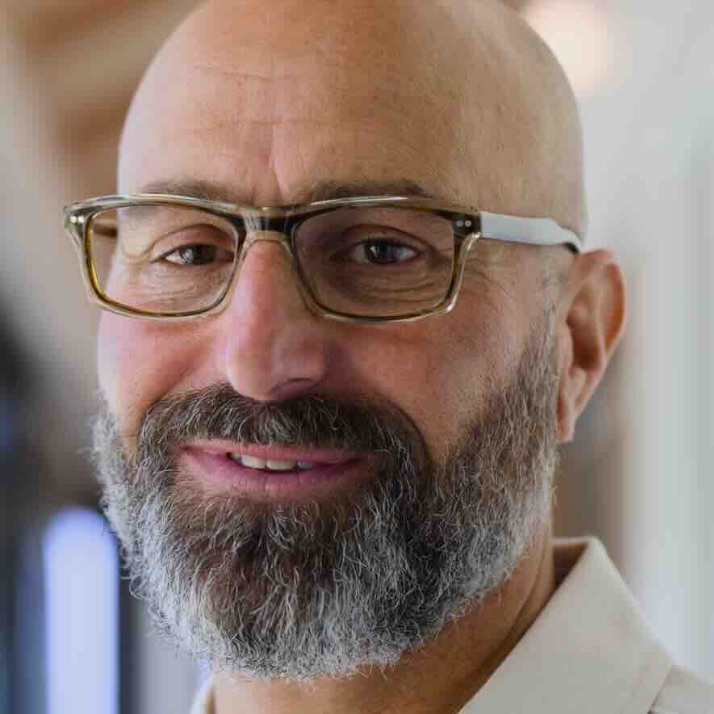What Is Schema Focused Therapy?
Schema Therapy was developed by Dr. Jeffrey Young as an evolution of cognitive-behavioral therapy (CBT), designed specifically for clients who struggle with chronic emotional pain, long-standing relationship difficulties, and complex trauma that standard CBT often fails to fully resolve. Unlike therapies that focus only on present-day symptoms or short-term coping strategies, Schema Focused Therapy addresses the emotional wounds and unmet needs from early life that have created rigid, enduring patterns of thought, feeling, and behavior.
At its core, Schema Therapy integrates elements from several schools of psychotherapy, including CBT, psychodynamic therapy, attachment theory, and experiential techniques. It focuses on both cognition and emotion, helping clients process childhood experiences, challenge distorted core beliefs, and practice new ways of relating to themselves and others. This approach recognizes that many psychological struggles are not simply about faulty thinking, but about unmet emotional needs and pain that still live inside us.
What Are Schemas?
In Schema Focused Therapy, schemas are deeply ingrained emotional patterns or core themes that shape how we view ourselves, other people, and the world. These schemas often originate in childhood when core emotional needs — such as safety, love, acceptance, and validation — were not consistently met. As we grow older, these unconscious patterns continue to color our experiences, often leading to emotional distress, self-sabotaging behaviors, or dysfunctional relationships.
Common schemas include feelings of abandonment, defectiveness, mistrust, emotional deprivation, failure, shame, subjugation, or unrelenting personal standards. People may unconsciously repeat these patterns in adult life, often reenacting early wounds with romantic partners, employers, or friendships. Over time, these schemas contribute to anxiety, depression, chronic emptiness, and difficulty maintaining healthy relationships.
What Are Modes in Schema Therapy?
A unique aspect of Schema Focused Therapy is the concept of “modes.” Modes describe the shifting emotional states, coping styles, and internal voices people experience when their schemas are triggered. Rather than thinking of a person as having one fixed personality, Schema Therapy recognizes that different modes often take over at different times depending on emotional circumstances.
Some common modes include the Vulnerable Child, who feels sadness, fear, or abandonment; the Angry Child, who expresses frustration; the Detached Protector, who numbs emotions to avoid pain; the Punitive Parent, who criticizes and shames; and the Healthy Adult, who can nurture, protect, and regulate emotions. Much of Schema Therapy involves helping clients strengthen their Healthy Adult mode, while healing the vulnerable parts that carry unprocessed emotional pain.
What Conditions Can Schema Focused Therapy Help With?
Schema Therapy is particularly effective for individuals who have struggled for years with complex emotional and relational difficulties. It has been widely used for clients facing:
Chronic depression, anxiety disorders that have not responded fully to traditional CBT, borderline personality disorder (BPD), narcissistic traits, complex trauma (C-PTSD), emotional dysregulation, and attachment-related struggles. Many clients who seek Schema Therapy experience persistent shame, low self-worth, and recurring conflicts in relationships that seem to repeat no matter how much insight they gain from talk therapy alone.
Schema Focused Therapy is also helpful for individuals who frequently self-sabotage, feel empty, or struggle with overwhelming emotions that feel out of proportion to current circumstances. These patterns often point to longstanding schemas rooted in childhood emotional pain.
Who Can Benefit from Schema Focused Therapy?
While Schema Therapy was originally developed for individuals with personality disorders, its reach extends far beyond that. Adults who notice longstanding patterns in their relationships, struggle with abandonment fears, or carry a constant undercurrent of shame often find Schema Therapy transformative. Trauma survivors who find it difficult to trust or feel emotionally safe in relationships benefit from its compassionate approach.
Many clients who have previously tried therapies like CBT, DBT, or psychodynamic counseling without deep or lasting change often turn to Schema Therapy when they realize that surface-level symptom management isn't enough. Schema Therapy offers a chance to address emotional wounds at their source and reprocess early experiences that continue to affect adult life.
What Happens in Schema Focused Therapy Sessions?
The work in Schema Focused Therapy begins with a thorough exploration of your personal history to identify the core schemas driving your emotional pain. This often involves questionnaires, life story discussions, and careful mapping of repeating patterns in relationships and behavior.
Therapists then use experiential techniques such as imagery rescripting, where clients revisit painful childhood moments in a safe, guided way to rewrite the emotional meaning of those experiences. Clients also learn to recognize when different modes are activated and practice dialogues between their Healthy Adult and other modes, gradually building self-compassion and emotional regulation skills.
Cognitive restructuring is another important element, where distorted beliefs about self-worth, safety, and trust are challenged and replaced with healthier, more accurate perspectives. Through a process called limited reparenting, therapists model empathy, protection, and care, helping clients experience corrective emotional experiences they may have missed during childhood.
Between sessions, clients often practice homework assignments that reinforce schema awareness, emotional regulation, and new relational patterns. Over time, clients experience a gradual restructuring of identity and increased ability to form secure, fulfilling relationships.
How Does Schema Focused Therapy Work?
The healing process in Schema Therapy is layered and progressive. It helps clients develop awareness of unconscious patterns that drive behaviors, emotions, and relationships. As awareness grows, clients learn how to meet emotional needs in healthier ways, instead of falling into old coping mechanisms such as avoidance, surrender, or overcompensation.
Through repeated corrective experiences — both in-session and in daily life — clients begin to reprocess early emotional wounds, heal attachment injuries, and develop stronger self-compassion. Emotional regulation improves as the Healthy Adult mode grows stronger, allowing clients to respond to challenges from a place of stability rather than reactivity.
By addressing the core pain that underlies many psychological symptoms, Schema Therapy offers the potential for lasting change — not just symptom management, but deep personality transformation.
How Is Schema Focused Therapy Different From CBT or DBT?
While CBT focuses on present-day thought patterns and behaviors, and DBT teaches emotion regulation and mindfulness skills, Schema Focused Therapy dives much deeper into early life experiences and long-standing emotional wounds. CBT may help challenge distorted thoughts, but often falls short when those thoughts are rooted in painful childhood schemas that have become emotionally entrenched.
Schema Therapy combines cognitive work with intense emotional processing, experiential interventions, and relational healing. Unlike many skills-based therapies, Schema Therapy requires both therapist and client to engage deeply with painful emotional material. It is more long-term, emotionally focused, and comprehensive than many short-term therapies.
Who Provides Schema Focused Therapy?
Schema Therapy requires specialized training beyond standard psychotherapy education. Licensed psychotherapists such as clinical psychologists, licensed professional counselors (LPC), licensed clinical social workers (LCSW), and marriage and family therapists (LMFT) can provide Schema Therapy if they have completed certification through organizations like the International Society of Schema Therapy (ISST).
Many Schema Therapists are also trauma-informed, with additional expertise in working with personality disorders, complex trauma, and attachment injuries. Because Schema Therapy involves both cognitive restructuring and deep emotional processing, therapists undergo extensive supervision to ensure they can safely and effectively guide clients through this complex work.
Is Schema Focused Therapy Evidence-Based?
Schema Therapy has strong empirical support, particularly for complex, treatment-resistant conditions. Studies have shown it to be highly effective for individuals with borderline personality disorder, chronic depression, complex PTSD, and narcissistic personality traits. In fact, several randomized controlled trials demonstrate that Schema Therapy produces more durable long-term improvements than traditional CBT for many clients with longstanding emotional difficulties.
As research on trauma and attachment continues to grow, Schema Therapy’s integrative approach makes it increasingly recognized by major mental health organizations as one of the most effective models for deeply rooted emotional and relational wounds.
How Long Does Schema Focused Therapy Take?
Because Schema Focused Therapy works on core personality structures that developed over many years, treatment tends to be longer-term. Many clients engage in Schema Therapy for at least one to two years, while others continue for several years depending on the depth of their schemas and the complexity of their history.
Early phases often focus on building trust and identifying schemas, followed by intensive emotional work and, eventually, consolidation of healthier patterns. While progress may feel slow at times, clients typically notice gradual, lasting changes in emotional stability, self-worth, and relationships.
Can Schema Focused Therapy Be Done Online?
Yes, Schema Therapy adapts well to telehealth. Many therapists conduct sessions via secure video platforms, offering full schema assessments, guided mode work, imagery rescripting, and homework assignments online. While some experiential techniques may feel slightly different online, most clients find that the emotional depth and therapeutic relationship remain strong in virtual sessions. Online Schema Therapy also allows access to specialized providers who may not be available locally.
When Should Someone Consider Schema Focused Therapy?
You might consider Schema Focused Therapy if you notice painful emotional patterns that seem to repeat despite your best efforts to change. If you feel trapped in cycles of shame, abandonment, or emotional pain that seem rooted in childhood, Schema Therapy can help you break these cycles at their core. It's especially helpful for people who have tried other forms of therapy but continue to feel stuck or experience chronic emotional distress that never fully resolves.
Schema Therapy offers hope for individuals who long for not just symptom relief, but lasting change in how they see themselves, their relationships, and their emotional lives.
Is Schema Focused Therapy Covered by Insurance?
Most clients can use their standard mental health insurance benefits for Schema Therapy when working with a licensed provider. Sessions are typically billed under general psychotherapy codes. As with all therapy, coverage depends on your provider’s licensure and your specific insurance plan. Private pay, sliding scale rates, and HSA/FSA funds are often additional options for covering care.
Schema Therapy Helps Heal Emotional Wounds at Their Source
Schema Focused Therapy provides a unique opportunity to heal the emotional wounds that have shaped your life since childhood. A skilled Schema Therapist helps you safely explore and transform the deeply rooted beliefs that contribute to shame, abandonment fears, self-sabotage, and relationship struggles. Whether you're seeking relief from long-standing emotional pain, struggling with patterns you can’t seem to break, or simply ready for deep personal transformation, Schema Therapy offers the structure and depth needed for true, lasting healing.













